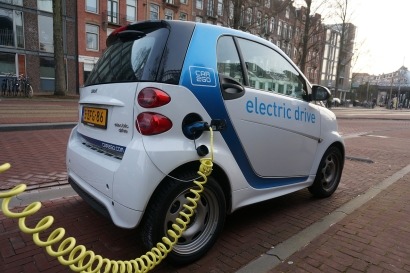
This new study from Zemo Partnership provides further evidence to show that renewable fuels can make a cost effective, immediate and significant contribution to meeting UK targets to cut greenhouse gas emissions on the pathway to net zero GHG.
The UK needs to cut GHG emissions from surface transport by almost 100 million tons by 2035[1], extending to around 136 million tons by 2050. A variety of approaches will be needed to replace fossil fuels and deliver emissions reductions at the scale necessary within this timeframe.
A range of renewable fuels are available to fleet and other users today and are a clear, practical option for hard-to-electrify applications such as long-distance haulage.
Using renewable fuels in hybrid vehicles can help to decarbonize applications for which a pure electric vehicle is currently unaffordable or unavailable, due to the power demand, vehicle range or recharging considerations.
Zemo analysis shows that in all vehicle segments modeled, renewable fuels offer significant GHG emissions savings when compared with conventional, predominantly fossil-content fuels. Some renewable fuels applications show greater life cycle GHG emissions savings than current battery electric vehicles using grid electricity, though rapid decarbonization of UK power supplies will continue to shift the balance in favor of electrification over time.
The analysis shows that a one-size-fits-all approach to road vehicle applications is unlikely to be the optimal solution to road transport decarbonization, at least in the short to medium-term.
The study authors recommend that transport policy and legislation should be more directly informed by vehicle life cycle GHG emissions data, and not focused solely on mitigating tailpipe emissions.
Organizations developing their fleet decarbonization strategies should also consider vehicle life cycle GHG emissions. In some circumstances, renewable fuels can achieve greater GHG emissions savings for the available budget than battery electric vehicles.
Operators of electric vehicles should also consider the size and capacity of the batteries used in their vehicles and optimize these depending on the use case. Larger, heavier batteries offer improved vehicle range, but emit more GHG emissions during production, increase vehicle consumption and may also reduce payload capacity.
Report co-author and Zemo’s Head of Sustainability, Gloria Esposito, said, “Zemo’s study elegantly demonstrates the importance of life cycle GHG emission analysis in fairly comparing different powertrain technologies and renewable fuels against today’s fossil fuel counterparts.
"Our work shows the significant contribution renewable fuels can continue to make towards reducing road transport GHG emissions. In particular, quick wins are available to the UK HGV fleet sector today.
“Transport policy has to rapidly evolve to embrace life cycle GHG emissions metrics. This is imperative to safeguard against unintended consequences and to enable a broader range of technology options to be recognized as viable candidates for decarbonizing transport.”
Download the Vehicle Life Cycle GHG Emissions study.
[1] Climate Change Committee 6th Carbon Budget

